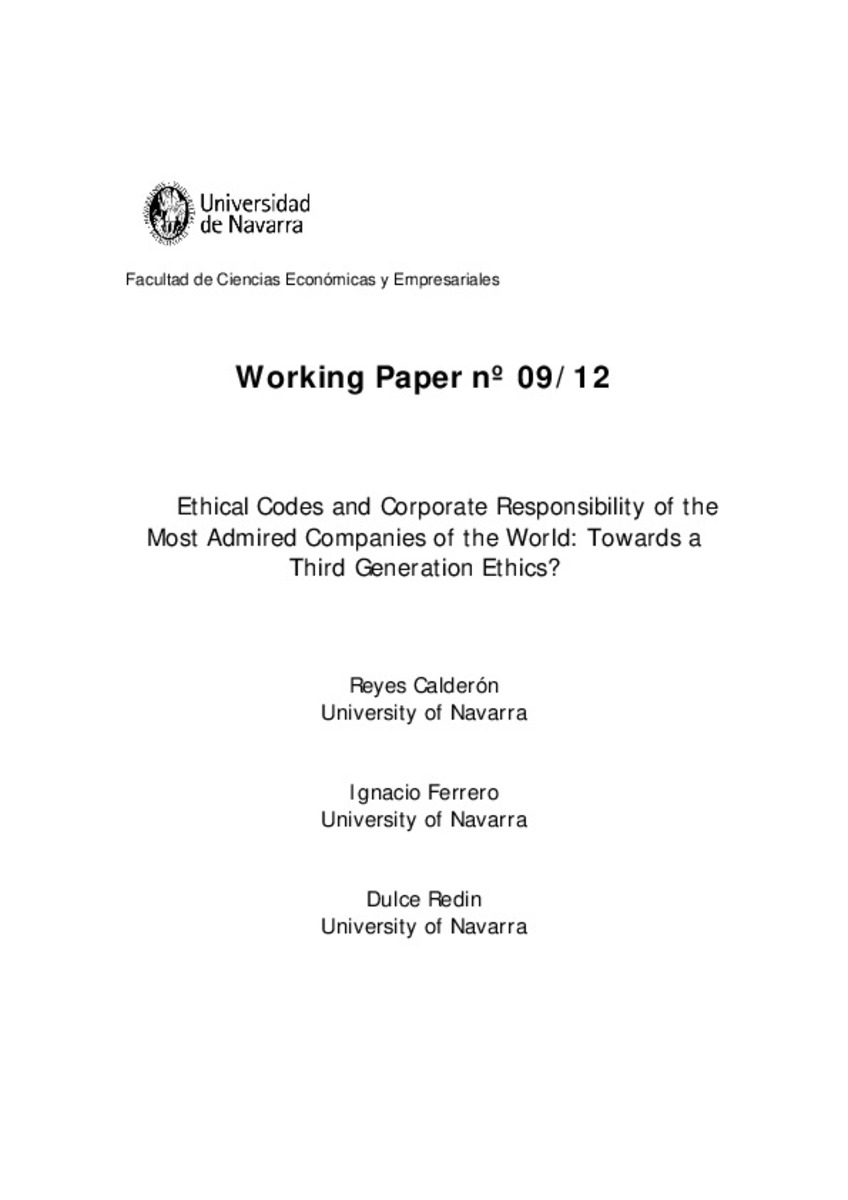Ethical Codes and Corporate Responsibility of the Most Admired Companies of the World: Towards a Third Generation Ethics?
Keywords:
Materias Investigacion::Economía y Empresa
Codes of Ethics
Corporate Social Responsibility
Corporate Governance
Third Generation Codes
Citation:
Calderón, R. (Reyes); Ferrero, I. (Ignacio); Redin, D. (Dulce). "Ethical Codes and Corporate Responsibility of the Most Admired Companies of the World: Towards a Third Generation Ethics?". En . , 2012,
Statistics and impact
0 citas en

0 citas en

Items in Dadun are protected by copyright, with all rights reserved, unless otherwise indicated.








